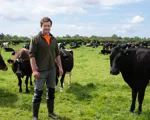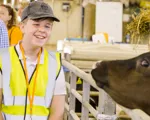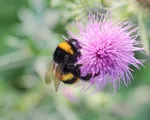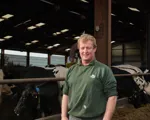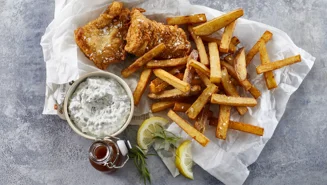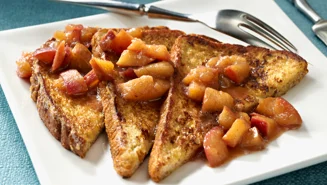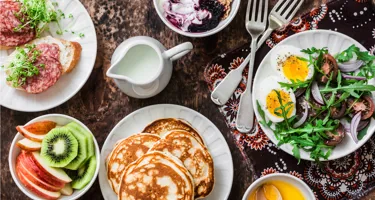
Eating a healthy diet is all about finding balance. We’ve all heard about the latest superfruit or miracle food that promises to change your life, but the reality is there’s no one single food that will give you everything you need.
To maintain good health, the key is to eat a balanced diet incorporating many different types of food, and to eat things in the right proportions. But do we know what nutrients we should be getting and in what proportions? Just what does a balanced diet look like?
What do we mean by a balanced diet?
A balanced diet is simply eating a wide variety of foods in the right proportions from the different food groups. This doesn’t mean you have to perfectly balance every single meal, but you should aim for a balanced diet over a day or several days.
Having an idea of what to eat in what proportion can make it easier to plan out meals and keep track of a balanced diet. These are the food groups you need to keep in mind:
Fruits and vegetables – we should be getting at least 5 portions of fruit and veg a day, and this food group should be making up at least a third of your diet overall.
Starchy foods – another third of your diet should be made up of starchy foods like potatoes, pasta, rice, and bread – useful things to base a meal on.
Protein – this can come from lean cuts of meat, fish, and other foods such as beans, lentils, and peas.
Dairy – milk and other dairy products like cheese and yogurt are important for getting enough calcium in your diet, along with vitamins and protein. Just remember to choose lower fat options.
Fats – unsaturated fats like vegetable and olive oils are the healthiest, and you only need a small amount in your overall diet.
Treats – foods high in sugar and fat can be eaten in small amounts and not too often. This includes things like crisps, cakes, biscuits, and sugary drinks.
Water – one not to forget! It’s important to always drink plenty of water, or low-sugar and low-fat drinks if you really don’t like plain water.
Do most parents know what nutrients a child needs?
As a parent, it can feel like a minefield when it comes to getting the right balance of food and nutrition for your kids. It’s been documented that many parents feel they need more help and guidance when it comes to choosing healthy options for their kids, with two thirds of parents feeling unsure.
Our own Danny Micklethwaite, Senior director of the milk category, wasn’t surprised to find out most parents aren’t sure about nutrition either: 'As a dad myself, I wasn’t surprised by a recent stat that reveals around 4-in-5 of parents don’t know how much of certain nutrients our kids need each day as part of a ‘healthy balanced diet’. It can be a minefield when you’re just trying to do your best and keep everyone happy and well-fed.'
Most of us have a general idea of what foods we need, such as getting 5 portions of fruit and veg, but often less of an idea of exactly why we need them. This can make it harder to make good choices if you’re not sure what a balanced diet looks like for a growing child.
According to the NHS, children should gradually move to eating the same foods as the rest of the family between the ages of 2 and 5. This means getting the right balance of fruits and vegetables for vitamins and fibre, getting enough protein and fats, and getting enough wholegrain carbohydrates. They should also move to cow’s milk or an alternative to ensure they get enough calcium.
You can read more about nutrition for children in the NHS Eatwell guide.
How Arla is helping to promote a balanced diet
We want to help everyone when it comes to learning about food, and make it easier for people to understand what they eat and to learn about nutrition and what a balanced diet looks like so we can all eat well.
We do this through education about food production, specifically dairy, and the health benefits of drinking milk and eating dairy products. We also help by creating healthy and delicious recipes that include dairy products.
Helping kids to learn about healthy eating is also something we’re passionate about, encouraging a healthier relationship with food over their lifetimes. Our educational initiatives include programmes like Magic Breakfast, which ensures thousands of children get the nutrition and energy they need to learn with healthy breakfasts, as well as providing educational materials and activities to classrooms around the UK.
Younger kids can learn about dairy farming and where food comes from with our children’s book Jonny and Jelly, which follows Jonny the farmer and his cow, Jelly. This wonderful book is also part of our partnership with the Magic Breakfast charity, which works to ensure kids start their day with a healthy breakfast so no child is too hungry to learn.
Take a look at all recipes to find out more about how we’re helping to promote balanced diets.
Nutritional guidance is based on the NHS Eatwell Guide.









